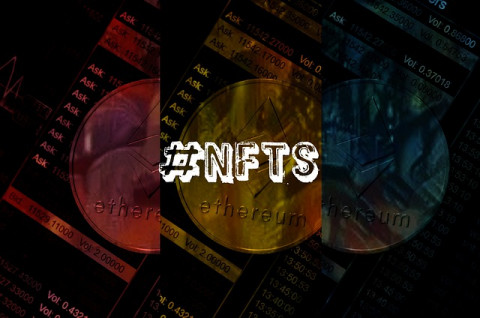
photo: Pixabay, nickyandell72
Musicians are ready for change as the current music streaming paradigm means that labels and streaming platforms capture 75-95 percent of revenue paid for listening to streamed music. In 2022, new blockchain-based technology will help them grab back their fair share of industry revenues.
Non-fungible tokens, or NFTs, are unique digital assets, the ownership of which can be established and stored on a digital ledger via blockchain tech. And 2021 was the year of the rise of NFTs as out of nowhere they gained traction. Investors wildly bid up things like uniquely generated character images from CryptoPunks and illustrations by the former unknown artist Beeple, one of which sold for a record $69M in March.
While the early days of NFTs have looked chaotic and dangerous for asset buyers, the outlook is bright for NFT technology. Not only does an NFT-based platform offer a new way to verify the ownership of rights, but also a way to distribute rights without intermediaries, i.e., a completely decentralised system obviating the need for a centralised platform.
The use case for NFTs could prove particularly compelling in the next step for the technology for content generators in the music industry as musicians feel unfairly treated by the revenue sharing models of the current streaming platforms like Spotify and Apple Music. These models don’t guide individual subscribers’ fees to the actual music an individual subscriber listens to. Rather, all subscription fee revenues are aggregated and distributed based on every artist’s share of total streams. In addition, the platforms take a substantial cut, which together with the cut paid to labels is some 75 percent or more of the total revenue.
But by leveraging NFTs, more specifically via “smart-contract” blockchains, artists could distribute music directly to listeners without centralised intermediaries taking a cut, while tracking their income in real-time—even getting paid in real-time—with listeners enjoying the knowledge that the money they are paying is going straight to the artist.
In 2022, an NFT-based service takes hold and begins offering music from notable stars – perhaps the likes of Katy Perry, The Chainsmokers and Jason Derulo, all of whom have recently backed an effort to create a new blockchain-powered streaming platform. Other well-known artists begin pulling their music from the now “traditional” streaming platforms, which suddenly find themselves terminally disrupted. Investors see the eventual writing on the wall for podcasts, movies and other forms of digitisable contents as well.
Market impact: Investors recognise that Spotify’s future is bleak, sending its shares down 33 percent in 2022.